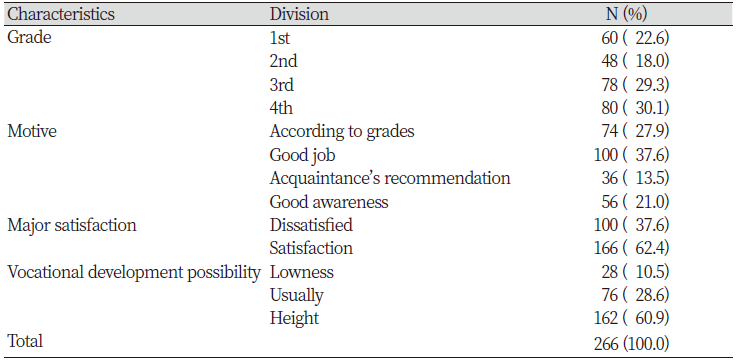Abstract
Objectives: The purpose of this study was to identify the types of ethics, professional intuition, and ethical competencies of students majoring in dental hygiene and to provide appropriate dental hygiene education by confirming the relationship between them. Methods: A survey was conducted from March 2 to March 30, 2021 using a questionnaire, and the data were analyzed using chi-square test, one-way analysis of variance, and Pearson’s correlation analysis. Results: Regarding the ethics type, absolutists accounted for 36.1%, relativists for 33.8%, subjective for 16.5%, and exceptionalists for 13.5% of the respondents. Dental hygiene professional intuition scored 3.53 points, and ethical competence scored 3.52 points. The points for professional intuition and ethical competence according to the type of ethics were 3.64 and 3.61 for the absolutist, 3.55 and 3.53 for the relativist, 3.47 and 3.53 for the exceptionalist, and 3.27 and 3.37 for the subjective, respectively. The propensity of idealism showed a positive correlation with dental hygiene professional intuition and ethical competence (
Figures & Tables



